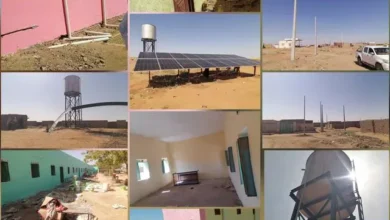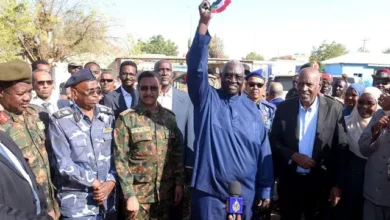Reviving Sudanese “white gold”: Challenges and opportunities in the cotton sector – Something for the homeland – ✍️ Mr. Salah Ghariba

Sudanese cotton has long been associated with high quality and abundant productivity, making it a vital part of the Sudanese economy and the country's agricultural reputation. The Gezira project, for example, was one of the largest irrigation projects in Africa and contributed significantly to the development of cotton farming in Sudan. However, this vital sector has been exposed to major challenges in recent decades, due to the overlapping political, economic and social factors.
The challenges facing Sudan's cotton sector are numerous, including economic sanctions which have imposed severe restrictions on trade and investment in Sudan, leading to the deterioration of agricultural infrastructure and a decline in productivity. Civil wars and armed conflicts have led to the destruction of the agricultural sector. land and displacement of farmers, which had a negative impact on cotton production. Sudan suffers from the effects of climate change, such as drought and floods, which affect the productivity of agricultural crops in general, including cotton. , such as agricultural machinery and modern irrigation systems, which affects production efficiency, and instability has led to Sudan's political policy has created an unfavorable environment for investment, discouraging investors to enter this sector.
Despite the many challenges facing the Sudanese cotton sector, there are promising opportunities to revive this vital sector, the most important of which is the need to lift economic sanctions, which represents a golden opportunity to revive the sector cotton, because this allows the inflow of capital. foreign investment, access to modern technologies and the facilitation of international trade. International cooperation with industrialized countries and international organizations can contribute to the development of Sudan's cotton sector by providing technical and financial support, and investments should be made in the development of agricultural infrastructure, such as irrigation and drainage networks. , providing agricultural roads and upgrading storage warehouses, focusing on developing value chains for Sudanese cotton, establishing textile and garment factories, marketing Sudanese cotton as a commodity high quality on global markets and encouraging cooperative agriculture. strengthen the capacity of farmers to negotiate with buyers and obtain the best prices for their products.
To achieve this goal, the Sudanese government and the private sector must cooperate closely. The government must develop agricultural policies that encourage investment in the agricultural sector, provide incentives to farmers and guarantee their rights. at appropriate interest rates, and facilitate… To obtain loans, the government must invest in agricultural research and development, develop new varieties of cotton resistant to diseases and pests, and increase their productivity.
As for the private sector, it must invest in agricultural projects. Private companies must invest in large agricultural projects and work to develop Sudanese cotton value chains. Private companies should strive to provide agricultural inputs to farmers at reasonable prices and provide various agricultural services. Private companies should strive to market Sudanese cotton to global markets and improve its image as a high-quality product.
Reviving Sudan's cotton sector requires the combined efforts of all parties: the government, the private sector and farmers. Through cooperation and hard work, Sudan can achieve a comprehensive agricultural renaissance and return to the ranks of high-quality cotton-producing countries.






